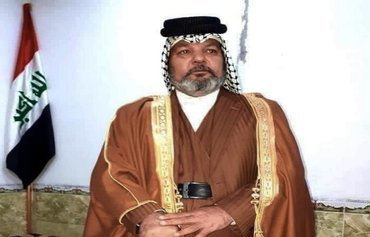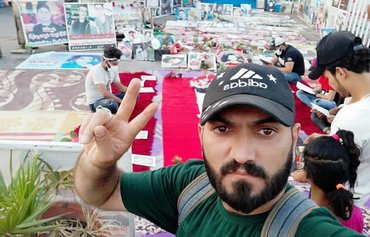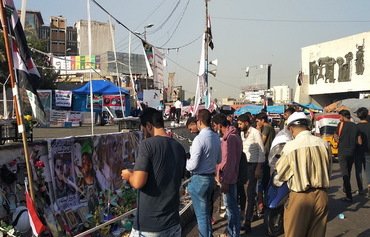Twenty-six activists have been assassinated by unknown gunmen since the start of the protest movement in the country last October, Iraq's Independent High Commission for Human Rights said Monday (March 16th).
The commission has counted 26 activists assassinated with direct fire by unknown gunmen, Ali al-Bayati, a spokesman for the commission, told Diyaruna.
Thirteen more activists have been injured in failed assassination attempts, while 15 others have survived such attempts unharmed.
This brings to 54 the total number of assassination attempts since the start of the popular protests calling for political reform, according to al-Bayati.
Last Friday, civilian activist Raheem Sajit al-Muntafaji was killed in the centre of Basra by gunmen using silencer weapons.
This latest attack comes just three days after the assassination of two activists -- artist Abdul Qaddous Qasim and lawyer Karar Adil -- in the city of al-Amara, the centre of Maysan province.
Armed parties are accused of using targeted killings to suppress the protests.
Officials who previously spoke with Diyaruna have accused Iraqi militias backed by Iran of mounting a systematic campaign against activists to terrorise protestors.
Systematic elimination of activists
The nature of the assassinations is one of "systematic terrorist acts, not individual acts, as they have been ongoing for several months and over a wide geographical area in the country", al-Bayati said.
"The security services have a responsibility to stop these attacks, whose pace has picked up, leaving a significant number of victims," he added.
"It is the duty of the relevant security institutions to conduct thorough investigations into all these assassinations, arrest the perpetrators with utmost speed, expose their identities to the public, and see that they receive fair punishment," he said.
Al-Bayati urged the security forces to "step up their efforts to eliminate weapon caches in Iraq, pursue all armed parties and take them down, and protect civilians from the threat they pose".
"The groups behind the activists' assassinations may intend to intimidate the demonstrators through their crimes and discourage them from continuing their protests," he said.
"But this method has proven its failure for violence has not stopped the people's protest movement, but rather increased it," he said.
"This makes us suspect that these groups have other goals, perhaps trying to demonise the demonstrations, create violent reactions and provoke chaos," al-Bayati added.
The commission also has recorded several cases of kidnapping of activists.
"Twenty two kidnapped activists have been released in recent months," al-Bayati said, adding that 42 other kidnapped activists are still missing.
Last week, unknown gunmen kidnapped journalist Tawfeeq al-Tamimi in eastern Baghdad as he was on his way to work.
Meanwhile, the fate of journalist and publisher Mazin Lateef, who was kidnapped more than a month ago, is still unknown.

![Artist Abdul Qaddous Qasim (R) and lawyer Karar Adil were assassinated last week in the city of al-Amara by unknown gunmen. [Photo circulated online]](/cnmi_di/images/2020/03/16/23012-Iraqi-Activists-Assassination-600_384.jpg)






